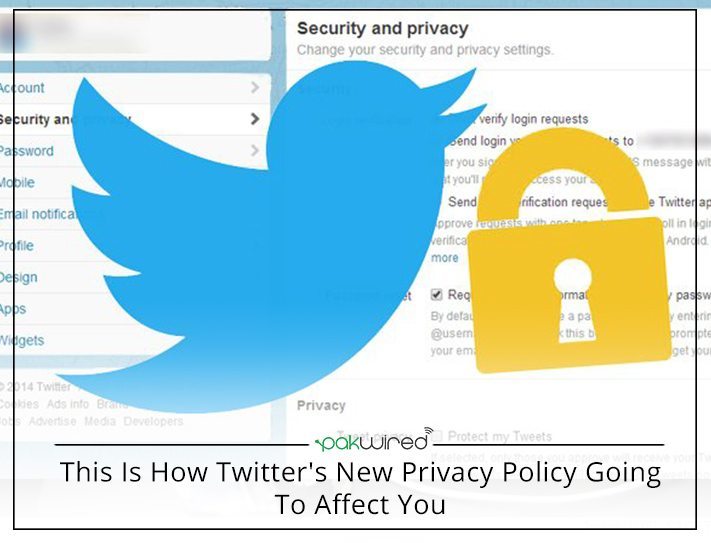Twitter has changed its privacy policy to make it more like that of Facebook. Subsequently, it can now track more users and display advertisements to monetize its user base.
Since Twitter went public, the quarterly revenue has suffered a loss. This defines the reason why Twitter has changed its privacy policy, which will be implemented starting 18th June.
Also Read: Twitter erroneously suspended its own CEO’s account
What’s new about the privacy policy?
Twitter has been tracking users for a long time already. For instance, users are tracked and targeted when they visit website with an embedded tweet or an option to share on Twitter.
Jules Polonetsky, CEO of the Future of Privacy Forum, an industry-sponsored think tank in Washington said that Twitter plans to expand the group of people it can track through these changes. This will further help in collecting additional data about those users when they surf the internet.
For example, instead of securing data about users’ web surfing for 10 days, Twitter will keep it for 30 days. This will allow Twitter to generate much broader user profiles.
Additionally, Twitter will no longer offer the ‘Do Not Track’ option that allows users to stop ads and social networks from tracking. Most of the social networks do not include this option anymore anyway. Twitter had been “one of the rare prominent brands that respected Do Not Track.”
Quick Read: Twitter Moments: How to use it in your marketing
Reason behind the change in policy
The chief reason is the revenue. Additionally, ads that are targeted using your likes and dislikes are more attractive than the standard ads. That is mainly how the online advertisement makes money. It is also the reason why social networks like, Twitter, Facebook and companies like Google offer free services. So indirectly, they will make money off you by providing you such ads.
According to eMarketer, a research firm, this year global digital ad spending is expected to reach $224 billion. Facebook and Google will control a mutual sum of $110 billion of this. Although Twitter is expected to get just 1% or $2.3 billion from this, Twitter financiers are looking forward for a bigger share through this policy.
Read More: Twitter announces new process for those who are seeking verified accounts
Is this beneficial for users?
According to Twitter, most of the users do not care about such things, so yeah, it’s beneficial. You will soon “soon start to see more relevant Tweets and ads based on your visits to sites with Twitter content,” tweets a pop-up notification reminding users of the change. It says that personalized ads you see already will develop and that “we’ve given you even more control” over your data.
The next available option asks to click a highlighted ‘sounds good’ option or choose ‘review settings’ which looks like a blur option underneath. Sounds good? Privacy advocates think otherwise.
Marc Rotenberg, president of the nonprofit Electronic Privacy Information Center said:
“Twitter’s announcement is bad news for online privacy. The company dropped Do Not Track and gave advertisers’ access to more user data. Also, all of the settings now default to disclosure, which means users have to go in and change their privacy settings”
If you are living in the US, shift to Europe. Other than achieving your life dreams, you will be provided with highly protected privacy policies.
Also Read: Twitter launches web based app – Twitter Lite, optimized for emerging markets
Instead of 10, Twitter will keep your web information for 30 days now. But the European Union and he European Free Trade Association (Iceland, Liechtenstein, Norway and Switzerland), are safe as it is prohibited in the region.
Keeping that in mind, you can visit http://twitter.com/personalization on a browser, go to settings, and select ‘Privacy and safety.’ You can review the policy step by step and decide if you want to turn off personalize ads (but still see non-targeted ads).
Moreover, you can disable all of them, alerting that “Turning this off may make the Tweets and ads you see less relevant.”
Is that what you really want? Click “Yes, I’m sure” and you’re done.





